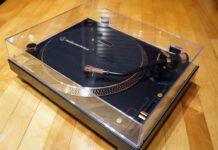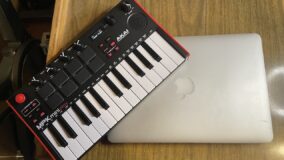
Hi Everybody! Today, I have the AKAI Professional MPK Mini Play MKIII for review. Music producers of all experience levels are always searching for a balance of versatility and portability in their equipment. For this reason, there is a lot of interest in small midi controllers. A good midi controller that meets the needs of both bedroom music producers and travelling music producers is a rare find! Best Buy asked me to review the Mini Play MKIII, and I’m excited to offer my feedback for the Best Buy Blog.
I’ll give you my impression of the hardware itself, as well as the sound quality of the Mini Play MKIII.
Mini Play MKIII controller has an improved design
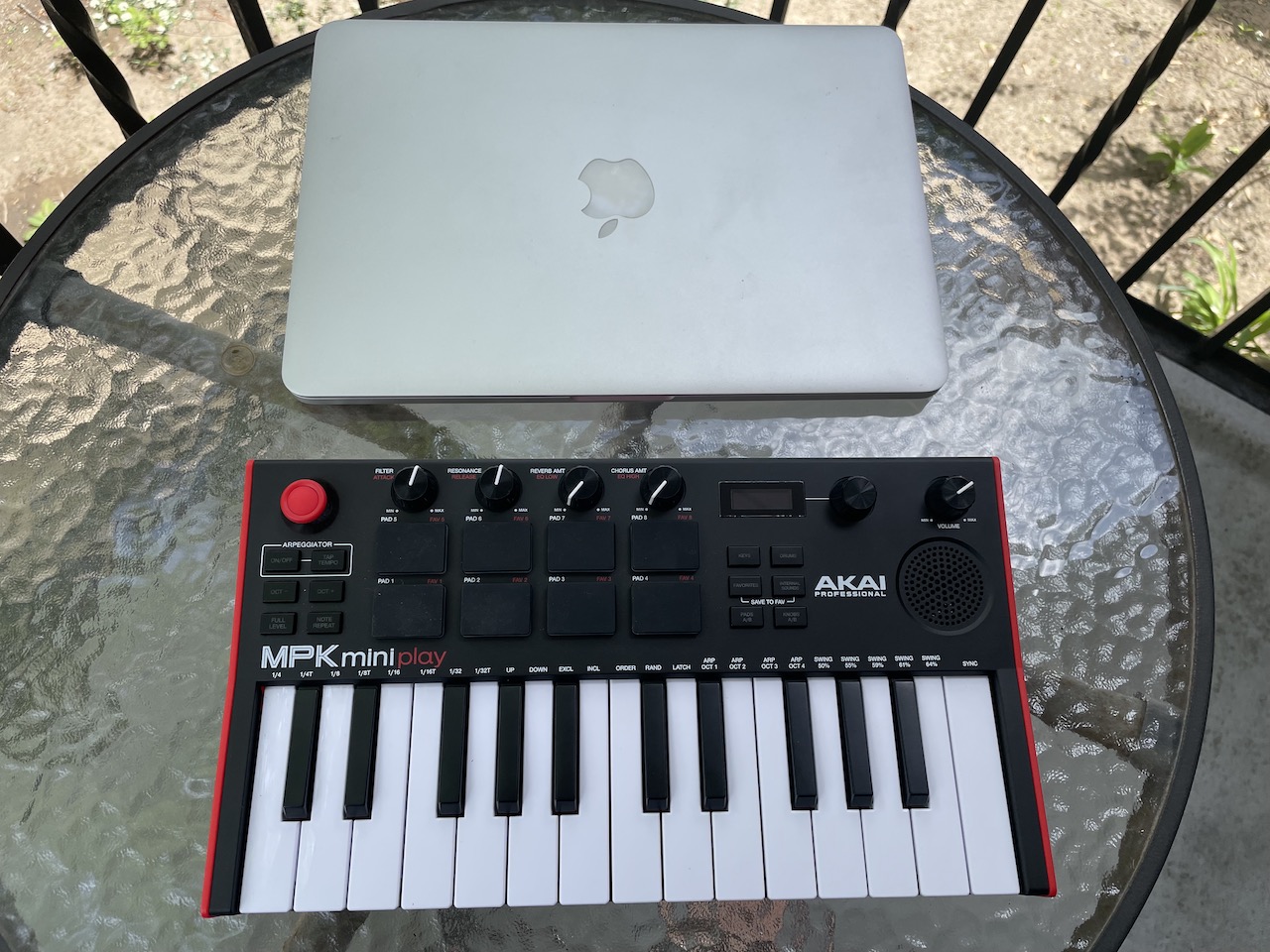
The MPK Mini Play MKIII is an intriguing update to the Mini Play series. AKAI has engineered an extremely portable midi controller with a lot of features! This version has a re-worked layout, keyboard, and built-in speaker. Carried forward from the MKII model are the MPC drum pads and large 128 onboard sound library.
The MKIII is dual-powered, either battery (4 AA) or USB from your computer. The battery option makes it possible to be creative almost anywhere! You can hear or share your inspiring ideas with ease via the small built-in speaker on the front. You can also find a nice shady spot in your nearest park, plug in your headphones, and start creating. This is a super fun feature and is one of the main advantages of the Mini Play series.
The built-in speaker has also been improved in the MKIII. The speaker is convenient, however, it is really just for reference. It does not provide a strong representation of the sound potential of the MIDI controller itself.
The keyboard touch feel is different from previous models. There is a slight weight to the keys, which are velocity-sensitive so you can play expressively.
I am inspired by how portable this midi controller is. It is very compact, and yet it feels big! AKAI does well to make the Mini Play MKIII comfortable to use for its size. Combined with my laptop, it makes for a fantastic duo for making music on the go. In my home studio, it frees up valuable space compared to my 49-key midi controller.
Connecting the unit via USB cable allows you to have full access to your DAW, and also a nice selection of included software from AKAI (more on this later).
First impressions: Unexpected fun!
As I first sat down with the Mini Play MKIII, I thought it would be a quick session. To my surprise, what happened next was 90 minutes of jamming with the MPC drum pads! They are simply amazing! The texture and response of the pads make you want to play and groove. It was a ton of fun to play around with these. Comparing these drum pads to my current midi controller is like comparing apples to oranges. MPK Mini Play wins, hands down.
Drum pads really groove
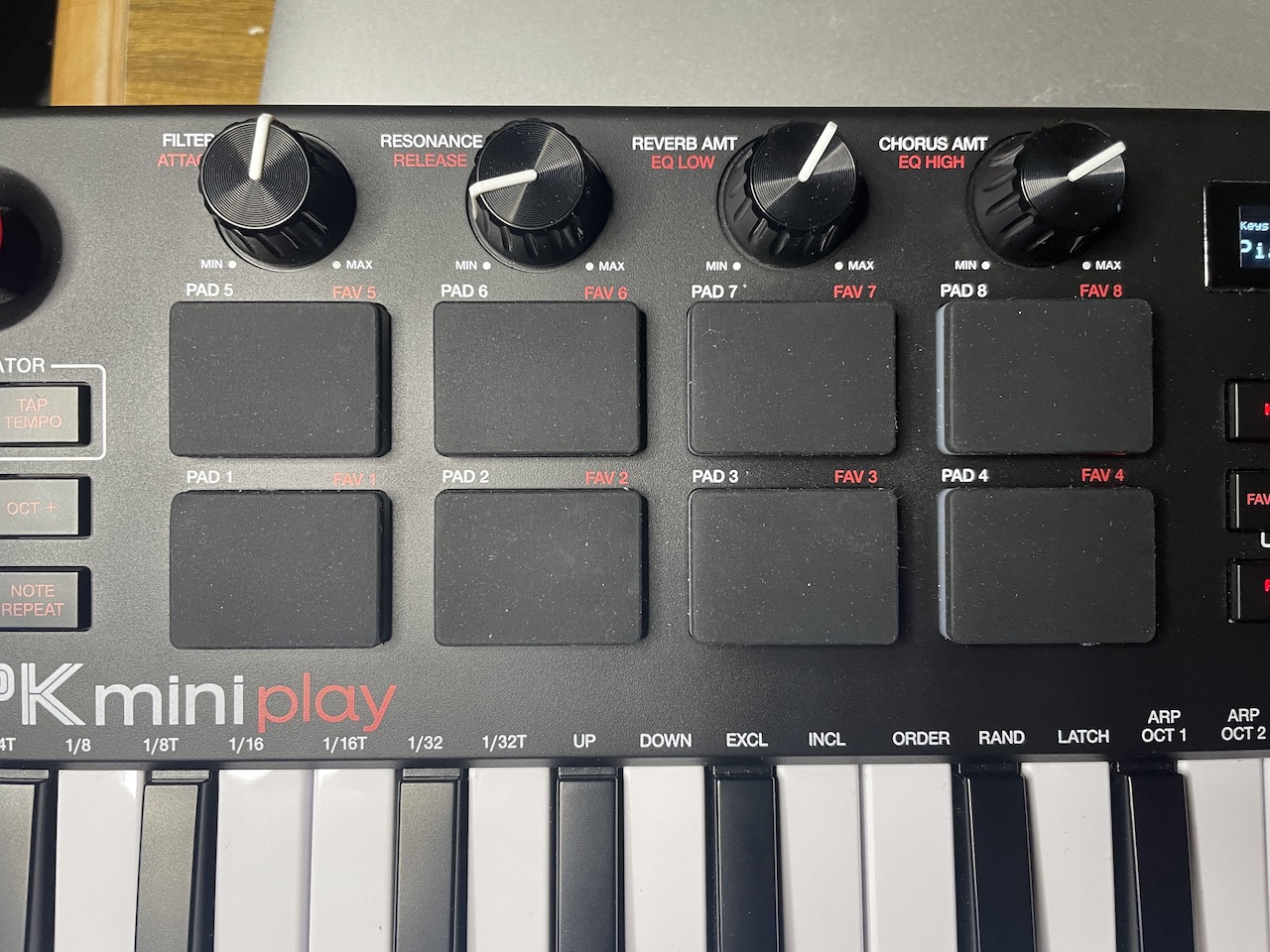
For generations of musicians, creators, and producers, AKAI MPC drum machines and samplers have been a must-have creative tool. There are a few good reasons for this, and one of them is the feel and response of the drum pads. I’m happy to report that the Mini Play MK3 uses the MPC quality drums pads!
I love the quality and musicality of the drums pads. They really are the best for finger drumming of any sort!
Akia Mini Play has 128 built-in sounds
The Mini Play comes with 128 built-in sounds. In spite of the large selection, I find the sound quality to be the biggest area to improve with this portable midi controller. Some of the synth sounds are indeed good. However, most of the sounds are not great. Any “real” instrument sound can be modernized in future models.
However, the sounds can be useful as a quick reference when you are in a wild creative moment. Considering the price and size of this midi controller, the sound quality is to be lived with.
Filter, Resonance, Attack, and Release controls
However, the Mini Play MkIII does have options for altering each sound. Filter, Resonance, Reverb, Chorus, Attack, Release, as well as Low and High EQ controls provide place creativity. With the right musical idea and just the right setting, you can manufacture some interesting sounds of your own. AKAI has included a “Favorites” setting so you can save interesting combinations you create.
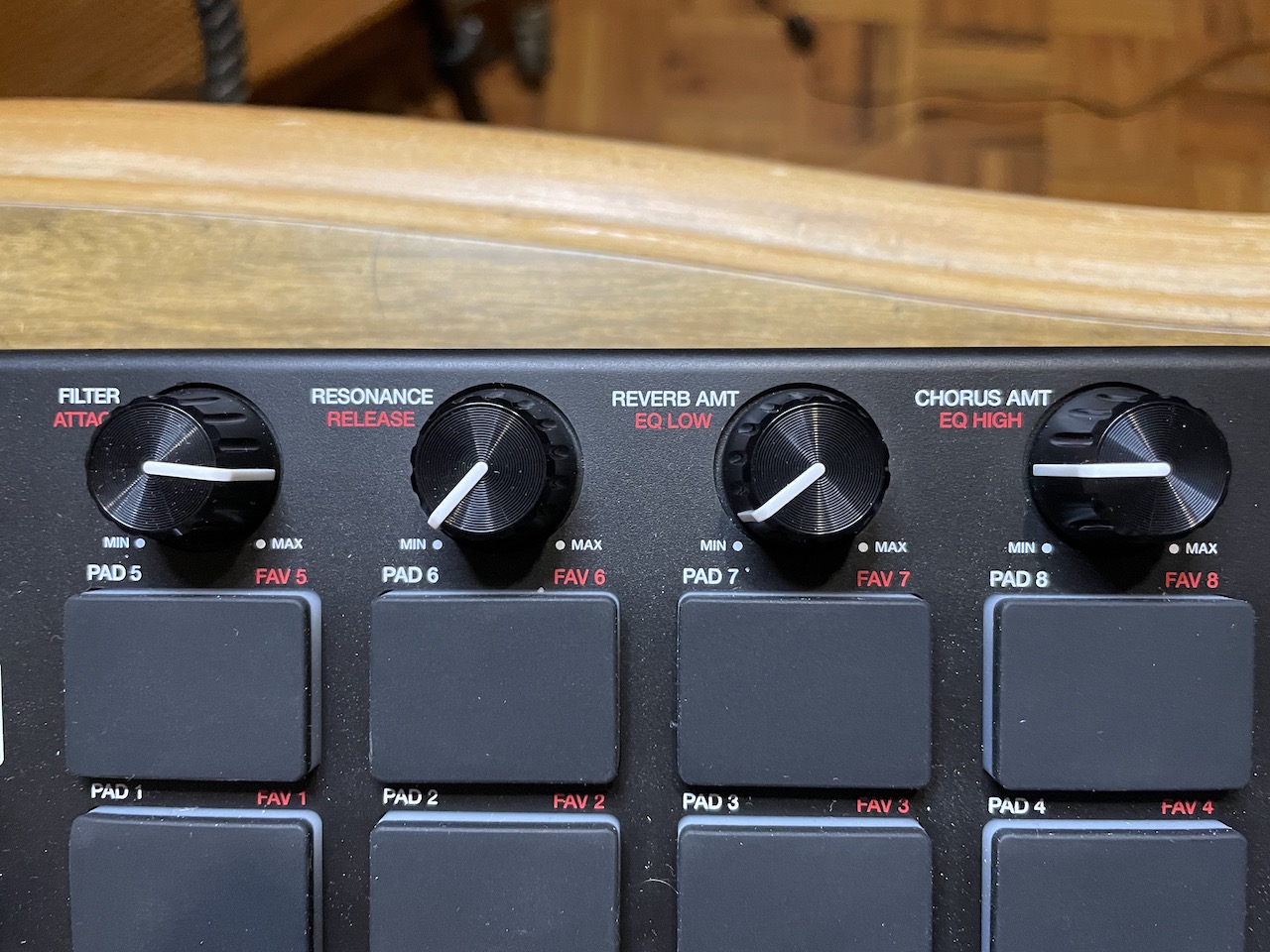
The effects themselves are not high-quality, but they do help to add feeling and ambiance. Reverb and Chorus options are provided to satisfy basic needs, but do not do much more.
Octave + and Octave – buttons expand the range of the keyboard beyond 25 keys.
The octave buttons add two octaves (either up or down), adding versatility to your projects.
Expression, Modulation, and Vibrato in a single wand
In the top left corner of the controller is a wand that allows manipulation of expression, pitch, and vibrato parameters. This is another nice way to coax a bit more character from the sounds. The wand is very small, which makes it difficult to control with precision. As with the onboard sounds and speaker, I feel this could be good for quickly referencing ideas. You may eventually want something more accurate for more precise production parameters.
Arpeggiator
The Arpeggiator feature is fun and versatile as well. It’s easy to use, and helps create all sorts of note textures that help your music sparkle. Coupled with the Arpeggiator is a Tap Tempo button, so you can calibrate the unit to the tempo of your choosing. For maximum effect, I suggest reading the user manual for this feature. There are a lot of options available once you understand how to access them. It is an uncomplicated tool once you are familiar with it.
The Note Repeat button is also useful for creating rapid-fire repeats. This effect is common in Trip-Hop and Hip-Hop productions, so it’s nice to see it included in the Mini Play midi controller.
MPC quantization features
Another legendary feature of the MPC samplers and drum machines is the quantization, or “swing”. When used, it has an effect on the way the rhythm is organized. This swing effect is an essential part of the feeling for Hip-Hop, Rap, and dance music.
The Mini Play MKIII uses the Swing feature on the rhythm of the arpeggiator. It really alters the groove of your part in a fun and creative way!
Included Apps to expand your sound options
AKAI includes an array of sonic tools for use on your computer. You will find Hybrid 3 Synth, Mini Grand Piano, and Velvet stage piano as well as the MPC Beats plugins. My favourite of the plugins is the Velvet stage piano. It feels the most natural of the three included keyboard instruments.
The MPC Beats is interesting, but complicated to use. For the purposes of this review, I can not do a deep dive into the app. I did spend some time with it, however. There is a steep learning curve here.
Akai MPK Mini Play is versatile and portable
Via its features and build quality, the MPK MiniPlay MKIII Midi controller offers good value. It has to be the most versatile and portable midi controller available today. These two characteristics are impressive enough to recommend it.
The main drawback with this midi controller is the built-in sounds. AKAI could work to improve these for the MKIV. The small speaker on the front is basic and good for quick reference. The drum pads are the best and most musical feature of the Mini Play MKIII, in my opinion.
The AKAI Professional MPK Mini Play MK3 MIDI Controller can be great for beginner or young musicians. There is lots to explore on this unit. At this stage of musical curiosity, we don’t need expensive MIDI instruments. For this reason, it’s a good purchase! Finally, as a bedroom music producer, this midi controller could be a good fit. It’s affordable and compact, and when used with VST instruments, does a great job. The added value here is the portability, especially if you are constantly on the move.
Thanks for reading my AKAI Professional MPK Mini Play MKIII review. If you’re ready to get creative with your new portable midi controller, you will find the AKAI Professional Mini Play MKIII on BestBuy.ca’s website!

